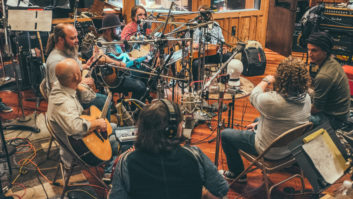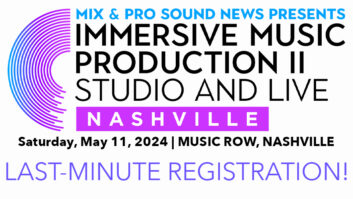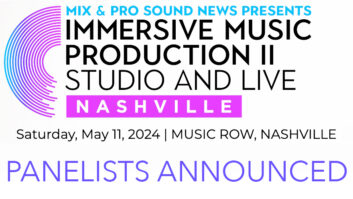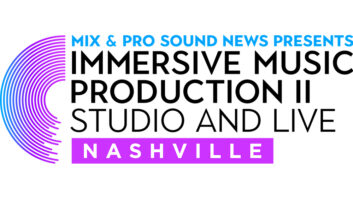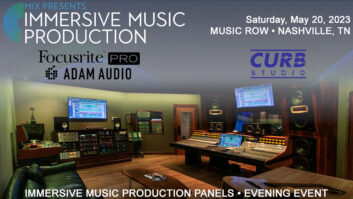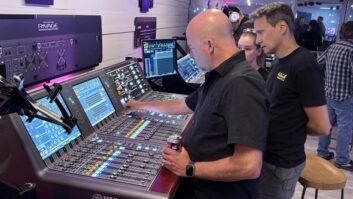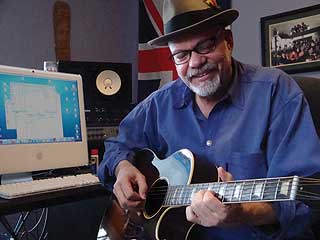
Little Miracles. Musicians donated their time, and proceeds from the project will fund Bowles’ medical care.
” />
Phil Madeira spearheaded the making of Ralston Bowles’ Little Miracles. Musicians donated their time, and proceeds from the project will fund Bowles’ medical care.
Photo: Peter Cooper
We live in a world where we’re barraged every day by how bad things are,” says Phil Madeira, the multi-instrumentalist, songwriter and producer who operates out of a Franklin studio he calls Planet of the Tapes. “But most people really want to do good.”
Madeira figures he knows something about commonplace decency. He just produced an album on Michigan singer/songwriter Ralston Bowles. That album, Little Miracles, features 35 musicians, all of them top-drawer players. Tracks were recorded in numerous states and assembled in Nashville. And he produced the thing on the most independent of budgets: No budget at all.
See, Bowles was short on cash, in large part because chemotherapy is expensive and because fighting colon cancer tends to keep a troubadour from steady gigging. Madeira, who spent much of 2009 playing in Emmylou Harris’ band, had a bit of down time at Planet of the Tapes, and he told Bowles that he’d produce an album and play on it at no charge.
“I told him he’d need to pay for a session drummer, and that I’d play all the other instruments,” Madeira says, but the thing didn’t work out that way at all. After a day of tracking live with a weakened but enthusiastic Bowles, drummer Bryan Owings refused to take any dough. And then Madeira decided to embark on a confluence of generosity and technology. He asked some music pro friends if they would be willing to download a file from www.yousendit.com, add a part and send it back. Those friends talked with other friends, and the circle grew larger. Tracks arrived from Nashville session aces Kenny Greenberg, Gordon Kennedy and James Pennebaker; from Minneapolis fiddler Jake Armerding; from former Monkee Mickey Dolenz; and from numerous others, some of whom Madeira had never met.
“The response was incredible,” Madeira says. “I’d send an MP3 and request a WAV file back, and everything I got back was great. On one track, David Mansfield in New Jersey played this gorgeous mandolin and Jake played fiddle. They didn’t even hear each other’s tracks, but there are places where what they play crosses together beautifully. It sounds like two guys sitting in a room together, playing. And all they had was bass, drums and Ralston’s guitar and voice.”
From Madeira to the other musicians to mix engineer Todd Robbins at The Workshop, nobody took a dime from Bowles. The singer/songwriter emerged with what would have been at least a $50,000 album. Little Miracles is a testament to kindness, and also to Bowles as a performer and songwriter. It’s also a much-needed spark in a career that has been paused but not destroyed by illness. With the flown-in tracks resting on live-recorded guitars, vocals and drums, the album manages to be performance-oriented and assemblage art.
“When we recorded basic tracks, Ralston sat with me in the control room,” Madeira said. “And Bryan was in the drum room. Derri Daugherty set up the mics on Ralston’s guitar and voice, and we used this [M-Audio] Sputnik mic on his voice. I discovered that mic at Buddy Miller’s house: He is nuts about that one. I had a Blue Baby Bottle on his guitar. For the most part, we didn’t use a click track.”
Madeira has developed a drum sound that he particularly favors, particularly when his microphones are used to capture versatile percussion buddy Owings. “I’ve got a great four-piece Ludwig kit from the ’70s, and Bryan brings his own cymbals,” he says. “I use an Audix kick drum mic, and I’ve got two Groove Tubes GT44 condenser mics overhead: one above the high tom, one above the low, equidistant from the snare. Then I’ve got a Groove Tubes GT 67 as a room mic. The overheads go through a Vintech Dual 72 preamp, then the kick and the room go through the Universal Audio 2610, and that’s all that’s happening.”
Planet of the Tapes is heavier on instruments than on recording gear. A Hammond B3 organ gets plenty of work, and Madeira often finds himself recording organ parts for out-of-towners and sending them out via YouSendIt. He listens back through Yamaha NS 10s and records to Pro Tools.
“I love big studios with lots of gear, but at some point I realized that most of my favorite records aren’t made in awesome rooms,” he says. “I’ve learned a lot from watching Buddy Miller. He has some stunning gear, but he’s not floating his floors, you know? I started out doing this because I was a songwriter who wanted to record his own tunes. These days, more people are recording who didn’t set out to be engineers, but just realized, ‘There’s an element to this rocket science that I can forego.’ That said, I value engineers and when I’ve mixed something in the box by myself, if it sounded really great, then I was lucky. I do value a person who truly understands signal path, and I’m glad we had those people involved with Ralston’s album. My training and love is to hear the note that’s out of tune, where their [job] is to hear the rattle in the drum head.”
Check out the work of Nashville musician/songwriter/journalist Peter Cooper at www.petercoopermusic.com.
